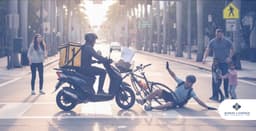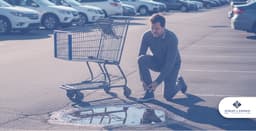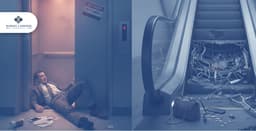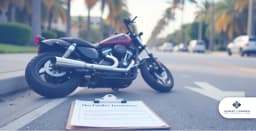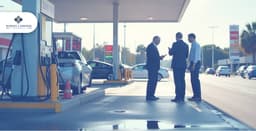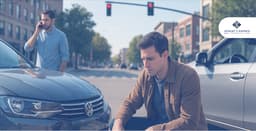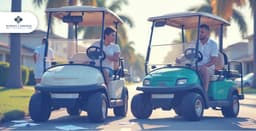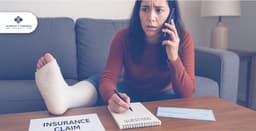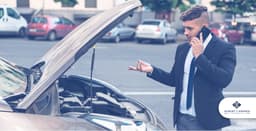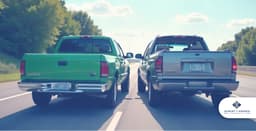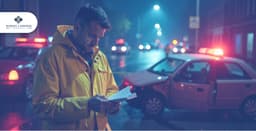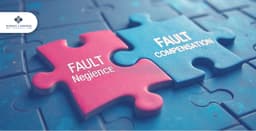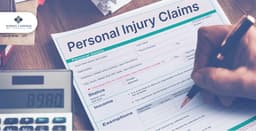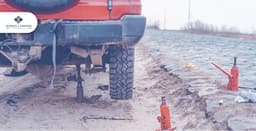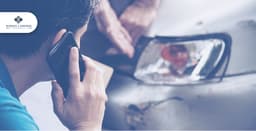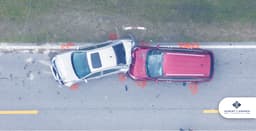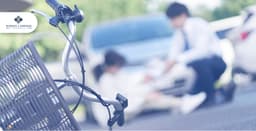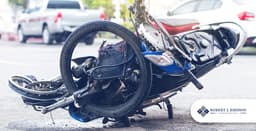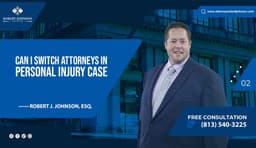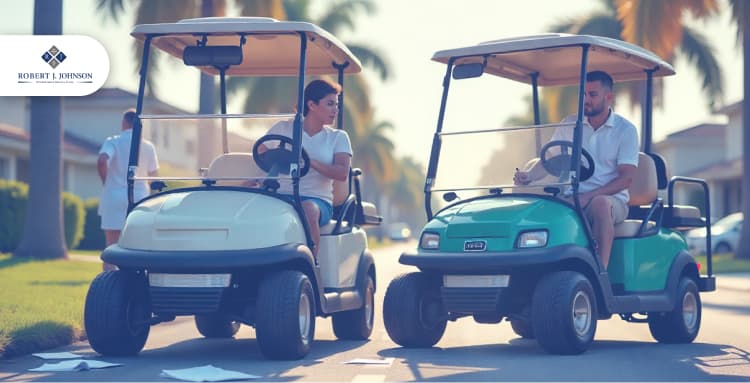
August 21, 2025
Can I Sue for a Golf Cart Accident in Florida?
In Florida, golf carts are no longer limited to golf courses. They’re widely used in resorts, retirement communities, and coastal neighborhoods, often driven on both private paths and public roads.
Around 15,000 golf cart-related injuries happen each year in the U.S.
Source: Consumer Product Safety Commission (CPSC)
These accidents can lead to serious harm, especially when carts are used in areas without proper traffic control or by untrained drivers. As their use continues to grow, so does confusion about legal responsibility.
Today, we’ll walk through when you can sue after a golf cart accident in Florida, how liability is determined, and what legal steps are worth considering.
(1) When Things Go Wrong: What Causes Most Golf Cart Crashes?
Golf carts may feel safer than traditional vehicles, but many accidents are anything but minor. Without doors, airbags, or seat belts, one wrong turn or bump can lead to serious injuries. Most crashes in Florida involve situations that could have been prevented:
Unlicensed or underage drivers using carts for fun or transport in communities with little oversight
Reckless or distracted operation, often on winding paths or mixed-traffic roads
Sharp turns and rollovers, especially when carts are overloaded or driven too fast
Mechanical failure, often due to poor upkeep or aging batteries
Unsafe road conditions, including poor lighting, steep inclines, or unclear signage
Over 40% of golf cart injuries involve children under 16
Source: American Journal of Preventive Medicine
Children often ride as passengers or drivers in unregulated areas, raising serious safety concerns for families and property owners alike.
(2) Florida Law Isn’t Vague, Golf Carts and LSVs Have Different Rules
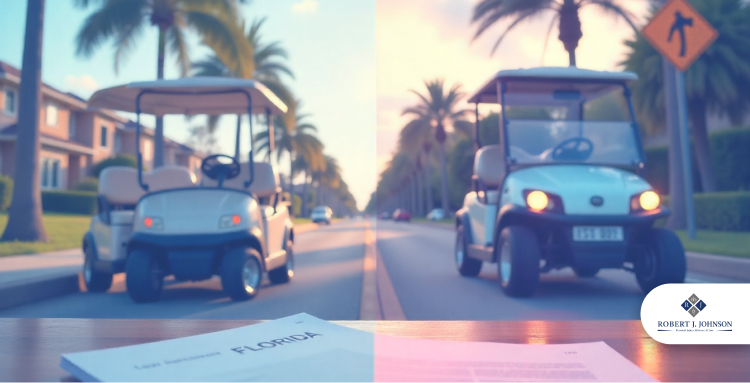
It’s easy to lump all slow-moving vehicles together, but Florida law draws a firm line between golf carts and Low-Speed Vehicles (LSVs). That line affects how they’re driven and what happens when they crash.
Golf carts aren’t built or allowed for most road use.
Max speed: 20 mph
Cannot operate on public roads unless specifically permitted
No need for registration, plates, or insurance
LSVs, on the other hand, are built for street use.
Max speed: 25 mph
Must be registered, insured, and equipped with safety features like seat belts and lights
Can legally drive on roads with posted limits of 35 mph or less
Florida has over 65,000 registered LSVs as of 2022
Source: FLHSMV – LSV Guidelines
These numbers show just how many modified carts are now sharing roads with traditional vehicles, raising legal and safety questions for both drivers and pedestrians.
(3) Who Can You Sue? It’s Not Always Just the Driver
When someone is hurt in a golf cart crash, responsibility doesn’t always stop with the person holding the wheel. Florida law recognizes that others may have played a role in what happened:
The driver, if they acted carelessly or broke traffic rules
A motorist, if another vehicle was involved in the collision
The owner, if they let someone unfit or unlicensed operate the cart
The property owner or HOA, if the accident was caused by a lack of signage, poor path maintenance, or lax safety enforcement
The manufacturer, if a defect caused brake failure, steering issues, or battery fires
Florida’s modified comparative fault rule also matters. Even if you share some responsibility, you can still pursue compensation if your share is under 51%.
Injured parties must be less than 51% at fault to recover compensation
Source: Florida House Bill 837 – 2023 Tort Reform
This shift in the law limits recovery options for victims found mostly at fault, making early investigation and legal analysis critical.
(4) Got Injured? Here’s When a Lawsuit Makes Sense

Filing a lawsuit isn’t always the first step after a golf cart crash; however, in many cases, it’s necessary. If the injuries go beyond minor scrapes or the financial impact is real, legal action may be the best way forward. You may have a valid claim if the accident caused:
Lasting injuries like fractures, spinal issues, or brain trauma
Substantial medical bills, especially for ER visits, imaging, or rehab
Time away from work, or permanent loss of earning ability
Scarring or emotional distress, especially after violent ejection or impact
Higher amounts are often awarded when the injury affects long-term quality of life or involves proven negligence by another party.
(5) Does Insurance Cover Golf Cart Accidents in Florida? Maybe, Maybe Not
One of the most confusing parts of a golf cart accident is figuring out who pays for the damages. Unlike cars, most golf carts are not legally required to carry insurance. Whether you’re covered depends on how the cart is classified and how it’s used.
Golf carts (non-LSVs)
Often uninsured
May fall under a homeowner’s policy if the accident happened on personal property
LSVs
Treated like motor vehicles
Must have liability coverage, which could help pay for injuries and property damage
The problem? Many claims are denied because the policies weren’t designed to cover golf cart use, or the fine print excludes off-road or unregistered vehicles.
Many claims get denied due to policy exclusions or a lack of coverage
Accidents that occur in gray areas, like shared community roads, often leave victims scrambling for alternatives unless a thorough legal review is done.
(6) What to Do After a Golf Cart Accident: A Simple Checklist
Taking the right steps after a golf cart crash protects your health and your legal rights. Even if it seems minor at first, injuries can worsen, and evidence can disappear. Here’s what to focus on:
Get medical attention, even for mild symptoms like dizziness or joint pain
Take clear photos of the scene, the cart, your injuries, and any property damage
Identify witnesses and write down names, phone numbers, and any statements
File an incident report with law enforcement, property management, or the HOA
Don’t sign anything from insurance or property managers until a lawyer reviews it
Injury victims with lawyers receive 3.5x higher settlements on average
Source: Insurance Research Council
Legal help doesn’t just mean better negotiation, it often means knowing which evidence matters and how to push back when insurers stall or lowball.
(7) Don’t Guess, Talk to a Florida Lawyer Who Gets Golf Cart Cases

Golf cart accidents don’t follow the same rules as car crashes. Insurance coverage, local ordinances, and road use rules can all vary depending on where the accident occurred and how the cart was classified.
A lawyer who’s familiar with Florida’s golf cart laws, HOA policies, and insurance gray zones can help you:
Determine if you have a valid claim
Identify the responsible parties
File the right kind of insurance or injury claim
Negotiate a fair settlement, or go to court if necessary
Florida’s statute of limitations for personal injury is two years
Missing this window could mean losing your chance to recover damages entirely, no matter how strong the facts of your case are.
To learn more about your rights after a golf cart accident or explore similar legal topics relevant to Florida residents feel free to browse our blog or reach out directly.
Injured in a Golf Cart Accident? Robert J. Johnson Stands Ready to Pursue What’s Fair
Golf cart accidents often raise questions that don’t have simple answers. Who’s responsible? Does insurance apply? Was the cart even street-legal? If you or someone you care about has been hurt, speaking with a legal professional isn’t just helpful, it may be necessary to understand your position under Florida law.
We represent clients across Florida in personal injury cases that involve both golf carts and low-speed vehicles. Whether the incident happened in a gated community, on a resort property, or along a residential road, these cases require close attention to liability, safety regulations, and coverage issues that vary by location and vehicle classification.
No two golf cart injury claims are alike. That’s why we take the time to review the full picture, scene conditions, maintenance records, driver behavior, and the extent of your injury to determine what legal routes are available and what kind of compensation may be recoverable under Florida’s civil statutes.
Not sure if pursuing legal action makes sense? Contact us for a consultation. We walk through the facts, help identify the liable parties, and explain what steps could protect your interests moving forward.
